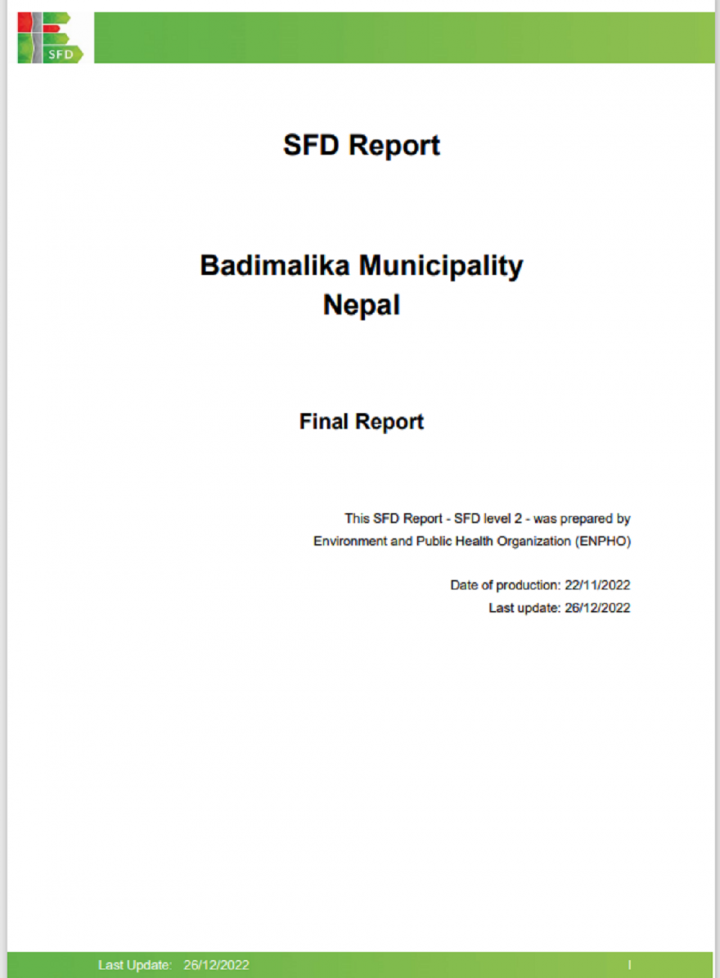SFD Intermediate Report - Badimalika, Nepal (2022)
Badimalika Municipality lies in Bajura District in Sudurpaschim Province of Nepal. It was established in March 2017 in accordance with the 2015 Nepali Constitution, as decided by the cabinet. It is formed by merging previously three Village Development Committees (VDCs) named Martadi, Budiganga and Jugada. There are nine political wards in the municipality.
Population of Municipality is 17,227, with 8,852 male and 8,375 female. Ward 9 has the highest population (2,889), while ward number 4 has least (937). The Badimalika Municipality has 3,129 total households. With a total of 590 households, ward number 8 had the most, while ward number 4 had the fewest with168
Sanitation system: Basic sanitation coverage in the municipality is only 99%. The families without own toilet defecate in open places or used neighbour’s toilet.
Containment: 99% of the households in municipality depend on onsite sanitation system. Majority of the households (43%) have connected their toilet to a single pit whereas twin pits are the least used containment system.
Since Martadi is the district headquarters of the Bajura district and a part of the Badimalika municipality, it serves as the primary location for most institutions. In most of these facilities, the toilet is connected to either a fully lined tank or unlined pits.
Emptying and Transportation: There is no regular emptying practices of the containments. Only 21.53% of the containments have been emptied at least once after the installation, out of which 95.89% of the households did so manually which is not a safe practice. The remaining 4.11% used the open emptying method, which also requires manual labour or self-help because there is no mechanism for mechanical emptying. 78.47% of HHs have not emptied their containment as it has not yet been filled.
Treatment and Disposal: The municipality lacks a faecal sludge treatment facility. The FS that is emptied from the containments is used in the agricultural land as well as dump in the pits.
Bibliographic information
(2022). SFD Intermediate Report - Badimalika, Nepal Environment and Public Health Organization (ENPHO)
Filter / Tags
Politicians and local decision makersPractitionersEnglishSFD Report

